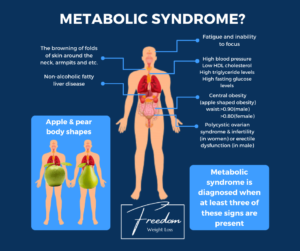Intermittent fasting (IF) is a popular approach to dieting that involves cycling between periods of fasting and non-fasting. While fasting has been practiced for centuries for cultural, spiritual, and health reasons, intermittent fasting has gained widespread attention in recent years due to its potential benefits for weight loss, improved metabolism, and longevity.
There are several different methods of intermittent fasting, but the most common are:
- 16/8 method: This involves eating only during an 8-hour window and fasting for the remaining 16 hours.
- 5:2 method: This involves eating normally for 5 days a week and restricting calorie intake to 500-600 calories for 2 non-consecutive days.
- Alternate-day fasting: This involves fasting every other day and eating normally on the other days.
How does intermittent fasting work for weight loss?
- IF limits the amount of time during the day that you eat, reducing your overall calorie intake.
- IF can lead to increased fat burning. When you go for long periods without eating, your body is forced to use stored energy (fat) for fuel, which can help reduce body fat and promote weight loss.
- IF can also help regulate hormones related to weight loss, like insulin and human growth hormone (HGH). By reducing insulin levels during fasting periods, your body is able to burn fat more effectively. Increased levels of HGH during fasting periods can also promote fat loss and muscle gain.
- IF can decrease inflammation, which is often associated with obesity and weight gain. By giving your body a break from constantly digesting food, you allow it to focus on repair and maintenance, which can lead to reduced inflammation and improved overall health.
While intermittent fasting can be a helpful tool for weight loss, it’s important to remember that it’s not a magic bullet. Ultimately, weight loss still requires a calorie deficit, meaning you need to consume fewer calories than you burn. Intermittent fasting can be an effective way to achieve this, but it’s not a substitute for healthy eating and exercise.
Are there other health benefits to intermittent fasting?
- Improved insulin sensitivity: Intermittent fasting may help improve the body’s sensitivity to insulin, which can reduce the risk of developing type 2 diabetes.
- Reduced inflammation: Fasting has been shown to reduce inflammation in the body, which is a risk factor for many chronic diseases.
- Improved cognitive function: Studies suggest that intermittent fasting may improve cognitive function and protect against neurodegenerative diseases like Alzheimer’s.
It’s important to note that intermittent fasting isn’t suitable for everyone. People who are pregnant or breastfeeding, have a history of disordered eating, or have certain medical conditions should avoid fasting or speak to a healthcare professional before trying it.
If you’re interested in trying intermittent fasting, it’s important to start slowly and gradually work your way up to longer fasting periods. It’s also important to stay hydrated and consume enough calories and nutrients during your non-fasting periods.
What should I eat when doing intermittent fasting?
The key to success with intermittent fasting is finding a way of eating that works for your individual needs and lifestyle. When doing intermittent fasting, the type of food you eat during your eating window is important for both your health and weight loss goals. Here are some tips on what to eat when doing intermittent fasting:
- Focus on whole, nutrient-dense foods: Eating a diet rich in whole, minimally processed foods is important for overall health and can help to support weight loss goals. Focus on foods such as fruits, vegetables, lean protein, healthy fats, and whole grains.
- Prioritize protein: Eating adequate amounts of protein can help to maintain muscle mass and support weight loss. Good sources of protein include chicken, fish, eggs, legumes, and tofu.
- Include healthy fats: Healthy fats such as avocados, nuts, seeds, and olive oil can help to keep you feeling full and satisfied during your fasting periods.
- Eat plenty of fiber: Eating fiber-rich foods can help to regulate blood sugar levels and promote feelings of fullness. Good sources of fiber include fruits, vegetables, whole grains, and legumes.
- Avoid processed and high-sugar foods: Foods that are high in added sugars or highly processed should be avoided as they can cause blood sugar spikes and cravings.
- Drink plenty of water: Staying hydrated is important during intermittent fasting, so be sure to drink plenty of water throughout the day.
What are potential side effects of intermittent fasting?
Intermittent fasting is generally considered safe for most healthy adults, but there are some potential side effects that can occur, especially in the early stages of starting an intermittent fasting routine. It’s important to note that these side effects are generally mild and temporary, and they tend to diminish as the body adjusts to intermittent fasting. If you experience severe or persistent symptoms, it’s important to speak with a healthcare professional.
- Hunger: During fasting periods you may experience hunger pangs, which can be uncomfortable for some people.
- Fatigue: Some people may experience fatigue, especially during the first few days of fasting, as the body adjusts to using stored energy for fuel.
- Headaches: Headaches are another common side effect of intermittent fasting in the early stages.
- Dehydration: It’s important to stay hydrated during fasting periods, as dehydration can lead to headaches, fatigue, and other symptoms.




